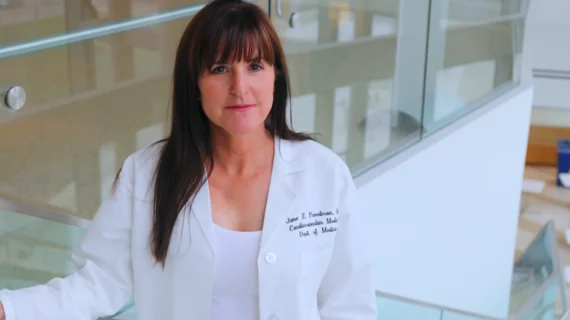Jane Freedman named new editor of Circulation Research
Massachusetts-based researcher Jane E. Freedman, MD, was named this week as the new editor of Circulation Research, one of the American Heart Association’s 12 scientific journals.
Freedman, the director of translational research at the UMass Memorial Heart & Vascular Center and a professor of medicine at the UMass Medical School in Worcester, has served on the editorial board for Circulation Research since 1998. More than two decades later, she’s taking the reins.
“I’m thrilled and honored to take on this role and I look forward to working with our new editorial board in broadening our scientific scope and having greater interface with early and mid-career scientist and even consumer audiences,” Freedman said in a statement June 20. “I’m continually fascinated, learning new things every day as I read through the submitted studies, and it’s exciting to know that the science we’re publishing today could likely be the practiced medical discoveries of tomorrow.”
Freedman’s main research interests are inflammation and immunity in cardiovascular thrombosis, gene expression and extracellular RNAs as biomarkers and modulators of heart disease. Her byline can be found on more than 150 papers published in established medical journals.
Circulation Research first launched in 1953 and has spent the past 66 years focused on high-quality translational and clinical research that “yields fundamental insights to advance the understanding of the mechanisms of disease and therapies.” Freedman outlined some of her early plans for the journal in her first issue as editor, including initiatives to start a regular podcast series and engage more with social media.

